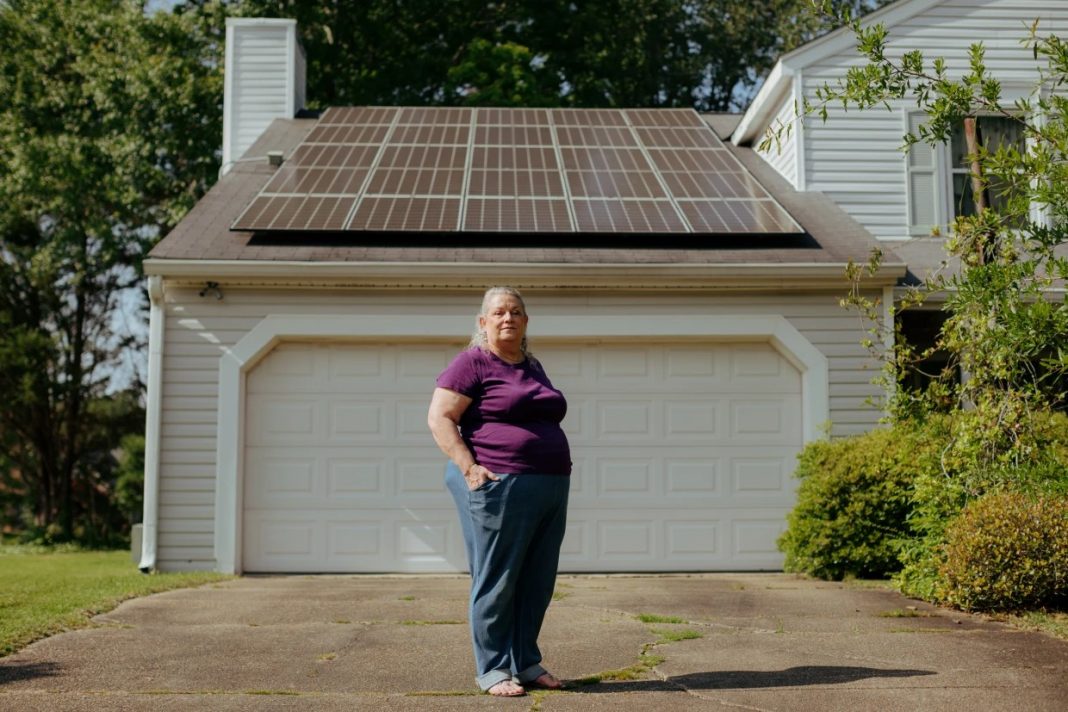One of the biggest thrills Lynn Krell and her husband experienced after they installed solar panels on the roof of their Hattiesburg, Mississippi, home was watching their power meter run backward as their utility credited them for excess power they sold back to the grid.
Those credits also showed up on their electricity bill, helping to cut their average monthly payments by $11 — in addition to the $250 or so they saved during peak summer months by using solar power themselves.
. . . . . . . . . . . . . . . . . . . . . . . . . . . . . . . . . . . . . . . . . .
But eventually the Krells began to question the value of the credits. The Krells learned that Mississippi regulations allowed utility companies to buy roof-generated solar power at a small fraction of the retail rate they charge to deliver that power back to customers’ homes. The Krells talked to rooftop solar owners in other states where more generous compensation rules allowed them to offset their entire electricity bills.
Mississippi, which gets a lot of sun, was one of the last states to give subsidies to people who install solar panels on their roofs in 2015, and those subsidies remain among the stingiest in the country. Thirty-seven states reimburse at the full retail rate, but Mississippi offers significantly less. That, experts say, is one of the reasons rooftop solar hasn’t caught on there. Only 586 Mississippi households have the technology.
How to fix that is the subject of a fight before the Mississippi Public Service Commission, which is considering rules that would expand subsidies for rooftop solar. The battle is one of several around the country that could determine the future of home solar panels, which advocates say are crucial to weaning the energy system off power sources that emit carbon dioxide, a major cause of global warming.

